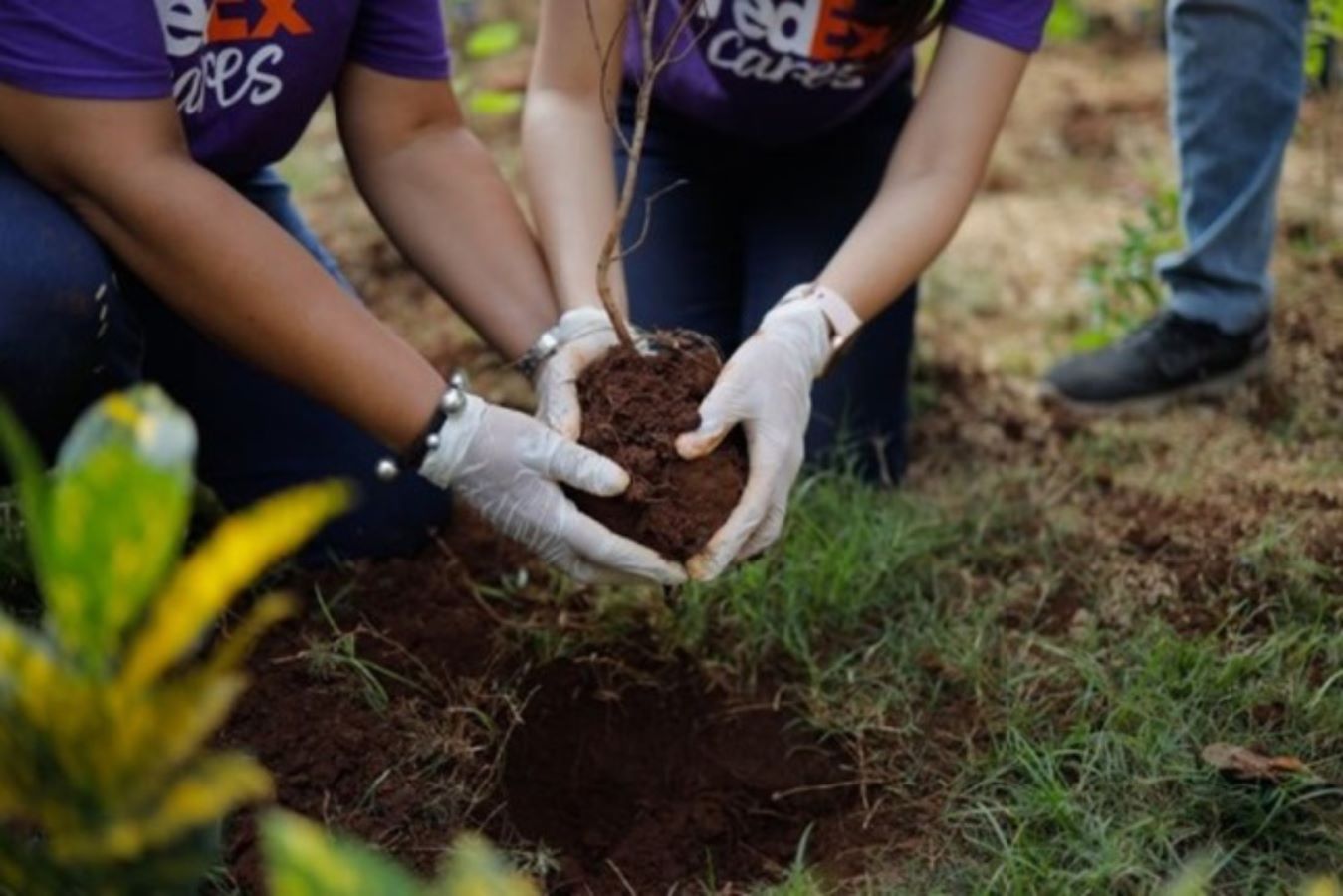New Delhi, May 9, 2024: Global express transportation company FedEx Express is investing over USD 2 million toward sustainable communities. FedEx will support 40 urban conservation projects worldwide, including India from March through May of 2024.
FedEx Cares volunteers, in collaboration with local NGOs, have successfully planted nearly 10,000 saplings in Mumbai and Delhi. These new trees will help reduce air pollution, mitigate the effects of urban heat islands and climate change, and enhance community health and wellness. These efforts are part of FedEx's broader commitment to environmental stewardship.
“More than just a symbolic act of environmental commitment, our initiatives reflect our dedication to India,” said Suvendu Choudhury, Vice President Operations, India and CE, MEISA, FedEx. “By enhancing urban landscapes, these initiatives also contribute to broader ecological efforts, with FedEx actively participating to shape a greener future for India,” he further added.
This initiative aligns closely with India's pledge under the Bonn Challenge to restore 26 million hectares of forest by 2030 and its National Forest Policy, which aims for forests to cover 33 per cent of the country.
Global urban conservation, particularly in the context of India, stands at the intersection of rapid urbanization, environmental sustainability, and cultural heritage preservation. As India undergoes unprecedented urban growth, with its cities expanding and populations swelling, the need for effective conservation measures becomes increasingly urgent. Urban areas in India are not only hubs of economic activity but also repositories of rich cultural heritage and biodiversity. Therefore, ensuring the conservation of these urban landscapes is essential for fostering sustainable development while safeguarding the nation's cultural and ecological legacy, experts opine.
One of the key challenges facing urban conservation in India is the balancing act between development and preservation. As cities evolve and modernize, there is often pressure to prioritize infrastructure projects and economic growth over heritage conservation and environmental protection. This dichotomy underscores the importance of implementing holistic urban planning approaches that integrate conservation principles into urban development strategies. By promoting mixed land-use patterns, green infrastructure, and heritage-sensitive design, cities can mitigate the adverse impacts of urbanization on their cultural and natural assets.
Moreover, global urban conservation in India requires collaborative efforts involving various stakeholders, including government agencies, local communities, NGOs, and private sector entities. Public participation and community engagement play a crucial role in fostering a sense of ownership and stewardship towards urban heritage and green spaces. Additionally, leveraging innovative technologies such as Geographic Information Systems (GIS), remote sensing, and digital mapping can enhance the effectiveness of urban conservation efforts by facilitating data-driven decision-making and monitoring.
Furthermore, initiatives such as heritage conservation districts, urban biodiversity parks, and adaptive reuse of historic buildings can contribute to the preservation of urban heritage while promoting sustainable urban development. These efforts not only enhance the quality of life for urban residents but also bolster tourism and cultural identity, contributing to the overall socio-economic well-being of cities. Global urban conservation in India is a multifaceted endeavour that requires a nuanced understanding of the interconnectedness between built heritage, natural ecosystems, and community dynamics, as well as a commitment to sustainable development principles. Through concerted action and innovative solutions, India can chart a course towards resilient and inclusive urban landscapes that embody the ethos of conservation and stewardship for future generations, experts opine.




















.jpg)



